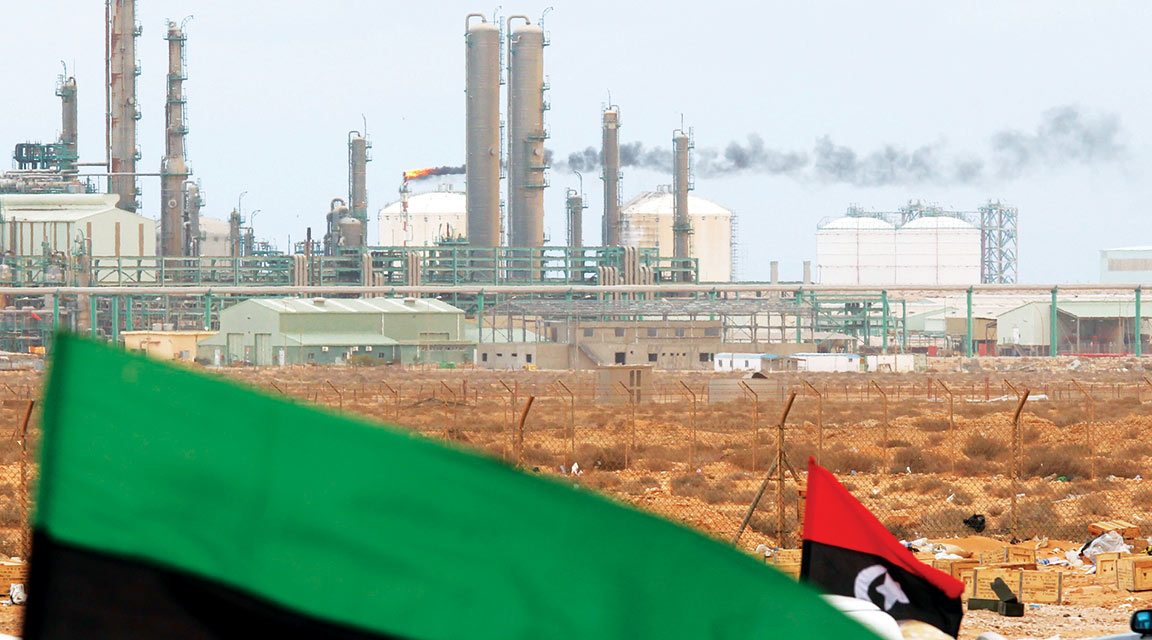

Libya’s National Oil Corporation (NOC) has called for a 67 per cent pay rise for its workers, following protests at the country’s largest oil field.
In a statement published on 23 August, NOC said its chairman Mustafa Sanalla had spoken with the internationally recognised premier of the Tripoli government Fayez al-Serraj to discuss the pay rise.
It is planning further talks with the Tripoli government over the coming days.
In the statement, Sanalla said: “Oil and gas workers are making enormous sacrifices and facing many risks, especially under current circumstances.
“Yet, they have managed to deliver a budget surplus of more than $1.4bn this year alone.
“The time has come for energy sector workers to receive recognition for their service, and to be recompensed for their efforts by implementing the 67 per cent pay rise.”
A 67 per cent pay rise had been approved by a previous government in October 2013, but it is yet to be implemented.
In its statement, the NOC said: “Fayez al-Sarraj recognised the continuous demand to implement the resolution, and his appreciation of the efforts of oil sector employees and their patience in recent years, in spite of exceptional circumstances that have prevented the resolution’s implementation.
“A meeting between the PC, NOC and the Ministry of Finance will be held next week to discuss the implementation of the pay rise.”
NOC said Sanalla had also pushed for increased investment in Libya’s oil sector to support the organisation’s “commitment to grow national oil revenues to finance improved public services and reconstruction projects across Libya”.
The recent protest at Libya’s largest oil field, El-Sharara, is one in a series of demonstrations and disruptions caused by oil workers complaining about low pay and poor working conditions.
On 19 July 2019, production from the El-Sharara oil field was stopped after an unidentified group sabotaged a valve on the pipeline that connects the facility to the port of Zawiya.
NOC subsequently declared force majeure on crude oil loadings at Zawiya.
By 22 July 2019, the pipeline valve, located between the Hamada oil field and Zawiya in northwest Libya, was reopened and the NOC lifted force majeure.
Prior to the closure, El-Sharara was producing 290,000 barrels a day (b/d) of crude, about 30 per cent of Libya’s entire daily output.
Analysts say the disruption to the field is a sign of declining security within the country as General Khalifa Haftar’s Libyan National Army (LNA) fights a fierce battle with the Government of National Accord (GNA) for control of Tripoli, the country’s capital city.
| This article has been unlocked to allow non-subscribers to sample MEED’s content. MEED provides exclusive news, data and analysis on the Middle East every day. For access to MEED’s Middle East business intelligence, subscribe here |
You might also like...

Hassan Allam and Siemens confirm Hafeet Rail award
24 April 2024

UAE builds its downstream and chemical sectors
24 April 2024

Acwa Power eyes selective asset sales
24 April 2024

Bahrain mall to install solar carport
24 April 2024
A MEED Subscription...
Subscribe or upgrade your current MEED.com package to support your strategic planning with the MENA region’s best source of business information. Proceed to our online shop below to find out more about the features in each package.





